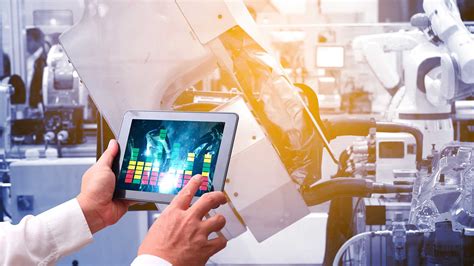The widespread adoption of programmable logic controllers (PLCs) in modern industry has transformed the way businesses operate, increasing efficiency, productivity, and profitability. As a crucial component of industrial automation, PLCs have become an essential tool for companies looking to streamline their processes, reduce costs, and improve product quality. In this article, we will explore seven key PLC applications in modern industry, highlighting their benefits, working mechanisms, and practical examples.
PLC Applications in Industrial Automation
PLCs have become an integral part of industrial automation, enabling companies to control, monitor, and optimize their processes with ease. With their ability to integrate with various devices, sensors, and actuators, PLCs have opened up new possibilities for industrial automation. From simple control systems to complex manufacturing processes, PLCs have proven to be a reliable and efficient solution.
1. Process Control Systems
One of the primary applications of PLCs is in process control systems, where they are used to monitor and control various parameters such as temperature, pressure, flow rate, and level. By using PLCs, companies can optimize their processes, reduce energy consumption, and improve product quality.

For example, in the chemical industry, PLCs are used to control the mixing of chemicals, ensuring that the correct proportions are maintained. This not only improves product quality but also reduces waste and minimizes the risk of accidents.
2. Manufacturing Execution Systems (MES)
PLCs are also used in manufacturing execution systems (MES), which are designed to manage and control the production process. MES systems use PLCs to track production data, monitor equipment performance, and optimize workflows.

For instance, in the automotive industry, MES systems are used to track production data, monitor equipment performance, and optimize workflows. This enables companies to identify bottlenecks, reduce waste, and improve product quality.
3. Robotics and Machine Control
PLCs are widely used in robotics and machine control applications, where they are used to control and monitor the movement of robots and machines. By using PLCs, companies can optimize their manufacturing processes, improve product quality, and reduce costs.

For example, in the food processing industry, PLCs are used to control and monitor the movement of robots and machines, ensuring that products are packaged and labeled correctly.
4. Power Distribution and Control
PLCs are also used in power distribution and control applications, where they are used to monitor and control the flow of electrical power. By using PLCs, companies can optimize their power distribution systems, reduce energy consumption, and improve reliability.

For instance, in the oil and gas industry, PLCs are used to monitor and control the flow of electrical power, ensuring that equipment is operating safely and efficiently.
5. Water and Wastewater Treatment
PLCs are used in water and wastewater treatment applications, where they are used to monitor and control the treatment process. By using PLCs, companies can optimize their treatment processes, improve water quality, and reduce costs.

For example, in the municipal water treatment industry, PLCs are used to monitor and control the treatment process, ensuring that water is safe for consumption.
6. Building Automation Systems (BAS)
PLCs are used in building automation systems (BAS), which are designed to control and monitor the systems within a building. By using PLCs, companies can optimize their building systems, reduce energy consumption, and improve occupant comfort.

For instance, in the commercial building industry, BAS systems are used to control and monitor the HVAC, lighting, and security systems, ensuring that buildings are comfortable, safe, and energy-efficient.
7. Oil and Gas Industry
PLCs are widely used in the oil and gas industry, where they are used to control and monitor the extraction, transportation, and refining processes. By using PLCs, companies can optimize their processes, improve safety, and reduce costs.

For example, in the offshore oil and gas industry, PLCs are used to control and monitor the extraction process, ensuring that oil and gas are extracted safely and efficiently.
Gallery of PLC Applications






FAQs
What is a PLC?
+A PLC (Programmable Logic Controller) is a type of computer that is designed to control and monitor industrial processes.
What are the benefits of using PLCs?
+The benefits of using PLCs include increased efficiency, improved product quality, and reduced costs.
What are some common applications of PLCs?
+Some common applications of PLCs include industrial automation, manufacturing execution systems, robotics and machine control, and power distribution and control.
In conclusion, PLCs have become an essential component of modern industry, enabling companies to control, monitor, and optimize their processes with ease. From industrial automation to power distribution and control, PLCs have proven to be a reliable and efficient solution. As technology continues to evolve, it is likely that PLCs will play an increasingly important role in shaping the future of industry.
